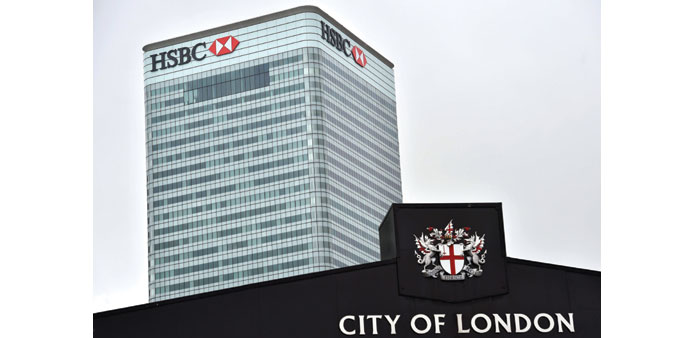Companies that trade at less than the value of their assets, from banks to paper makers and insurers, are leading gains at the Tokyo Stock Exchange in April.
Bloomberg/Tokyo
The unloved parts of Japan’s stock market are becoming the most popular.
Companies that trade at less than the value of their assets, from banks to paper makers and insurers, are leading gains in April. That’s pushing a gauge of Tokyo-listed stocks with low price-to-book ratios to the best performance relative to more expensive equities since December 2012. Mitsubishi UFJ Financial Group soared 16% through Thursday, adding $14bn in market capitalisation.
With the Topix near a seven-year high, investors are stampeding into industries they’d previously ignored. Domestic buyers worried about bubbles in drugmakers and food stocks are swapping them for cheaper shares, according to BGC Partners. For David Welch, head of equity sales trading at Reorient Group in Hong Kong, banks are an obvious candidate for foreign money managers who are late to the rally and searching for shares that still have room to rise.
“Investors are looking for cheap stocks and laggards,” Welch said. “Global fund managers are underweight Japan and are playing catch-up. It’s not even about the fundamentals at this stage, it’s all about positioning and performance.”
The Topix is up 15% this year in dollar terms, trouncing the Standard & Poor’s 500 Index’s 2.6% gain. Investors have put $15.4bn into exchange-traded funds tracking Japanese shares this year, data compiled by Bloomberg show. More than $5bn of that went to US-based ETFs.
Nomura Holdings capped a 7.6% two-day surge Thursday on the highest trading volume since the central bank’s last round of monetary easing. The nation’s biggest brokerage lost 15% in 2014, and eked out a gain that was less than a quarter of the Topix’s advance in the three months through March. The broad gauge fell 0.4% in Tokyo yesterday.
It’s not just big money managers who are jumping on the trend. SBI Securities Co, an online brokerage favoured by day traders and individual investors, said the three megabanks and Nomura were among its most-traded securities on Thursday.
For most of the share rally ignited by Prime Minister Shinzo Abe, bank stocks weren’t a great choice. Quarterly returns on the Topix Banks Index haven’t beaten the market since the first three months of 2013. With lenders reliant on a struggling domestic economy and getting fewer benefits from a weaker yen, investors favoured exporters instead.
That choice was reflected in the Nikkei 225 Stock Average’s outperformance relative to the broader Topix, said Takashi Hiroki, chief strategist at Monex Securities in Tokyo.
The smaller gauge closed Thursday at the highest since April 2000, while the Topix was 11% below its 2007 peak.
“Until recently, the Nikkei 225 was winning, but now the Topix is starting to break out,” Hiroki said. “Lenders have a large market value and are lagging behind, so there’s still room for them to keep rising.”
Bank bulls say there’s a logical reason for the gains: earnings.
Combined net income at Mitsubishi UFJ, Sumitomo Mitsui and Mizuho increased 22% in the quarter ended December 31, according to calculations derived from nine-month earnings statements. Analysts had expected their profit to drop.
“They are the most favourable to buy among global bank stocks,” said Hisashi Kuroda, the head of Japanese equities and chief portfolio manager at Meiji Yasuda Asset Management Co which oversees about ¥1.3tn. “The moves we’re seeing now are much more in line with fundamentals.”
Topix gauges of banks, shippers, insurers and paper makers have price-to-book ratios lower than 1, Bloomberg-compiled data show. Nomura is priced at about the value of its net assets, while drugmakers and food stocks trade at multiples twice as high.
The Tokyo Stock Exchange uses price-to-book ratios to divide first-section companies into growth and value gauges.
The Topix Value Index jumped 7% this month through Thursday, compared with 3.6% for the growth measure.
“There’s rotational buying into low-value companies, and financials seem to be in reasonably good shape,” said Amir Anvarzadeh, a manager of Japanese equity sales at BGC Partners in Singapore. “This is a big wave. The move to value will continue.”

